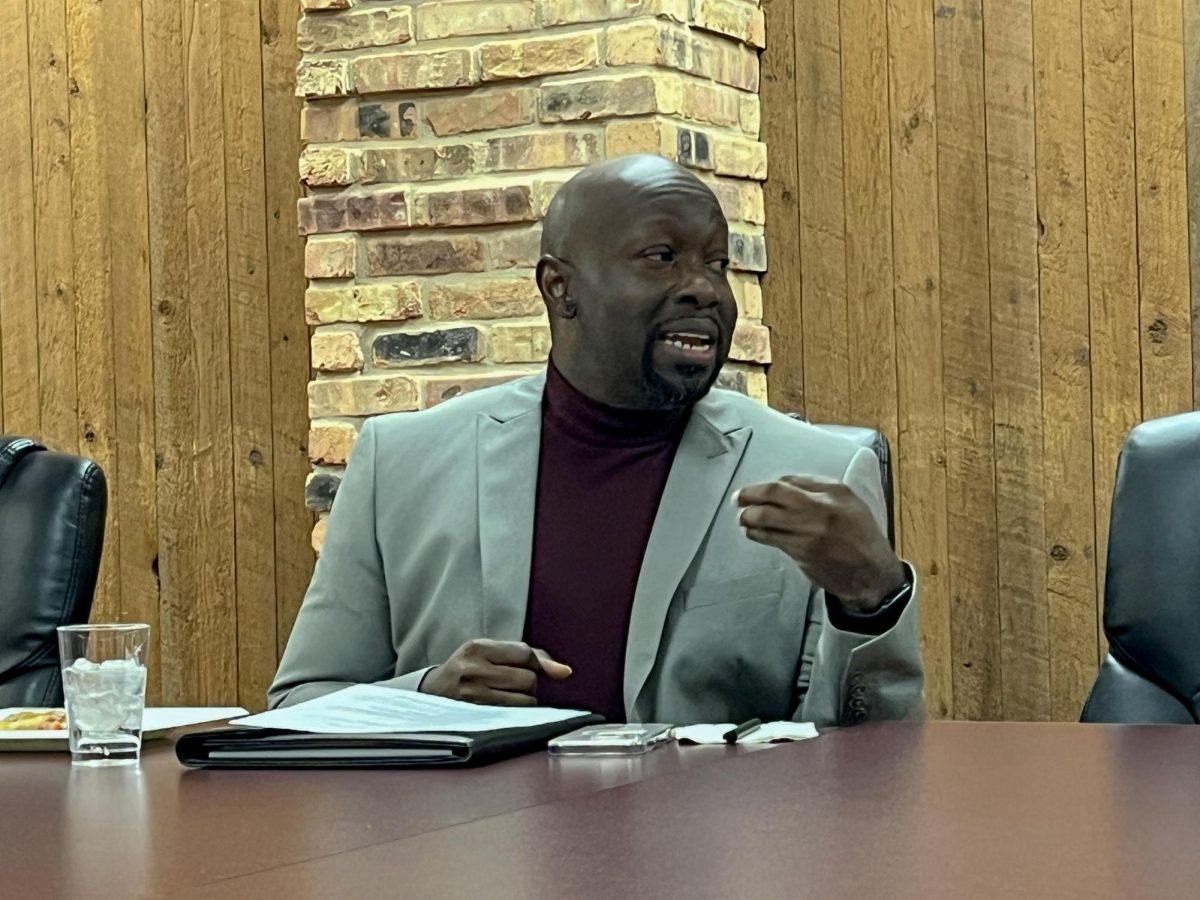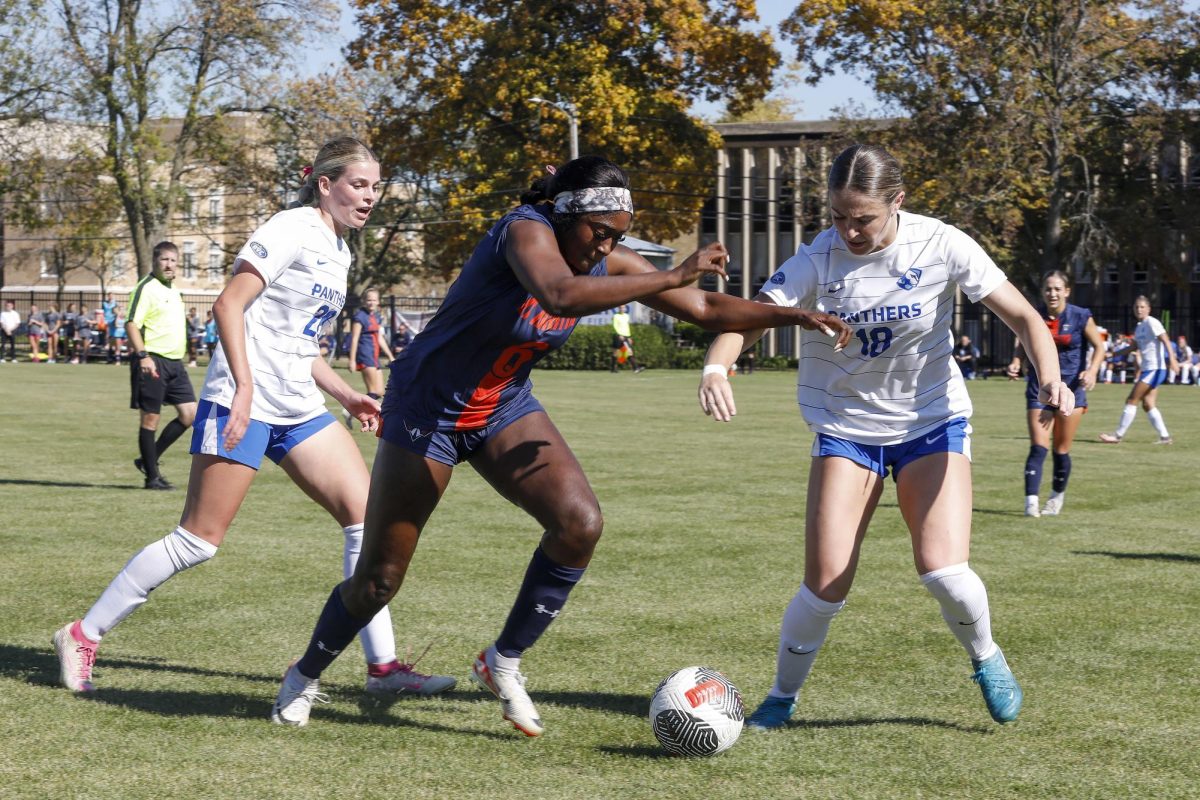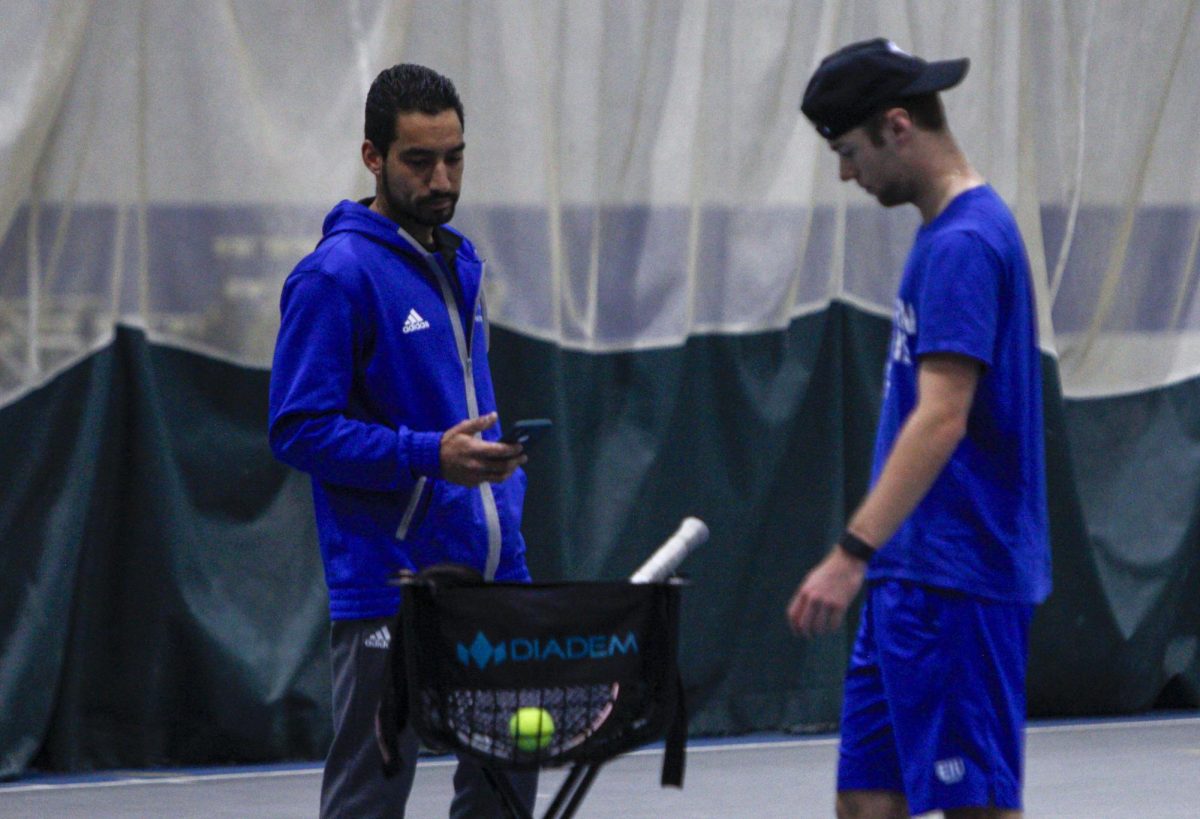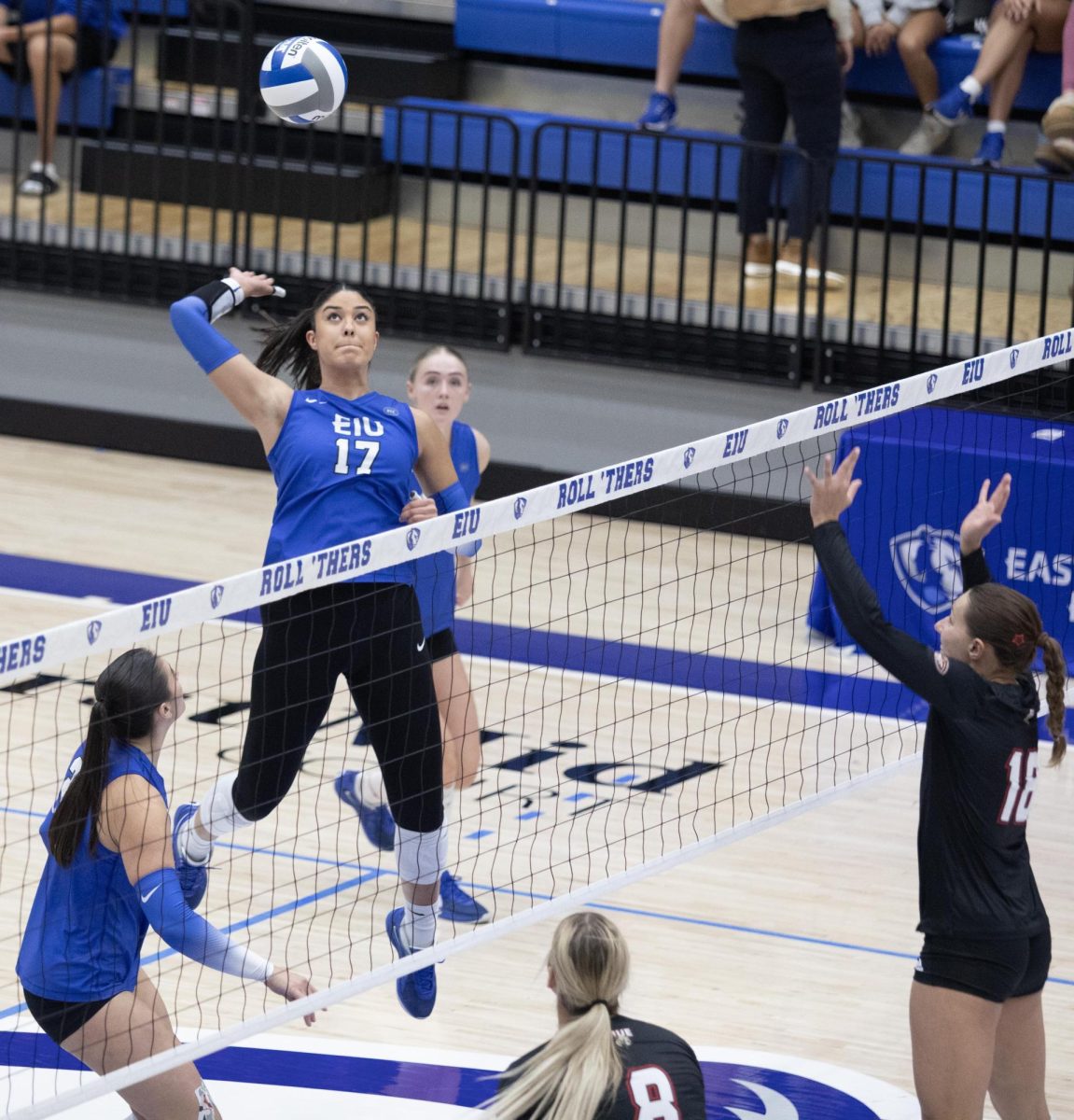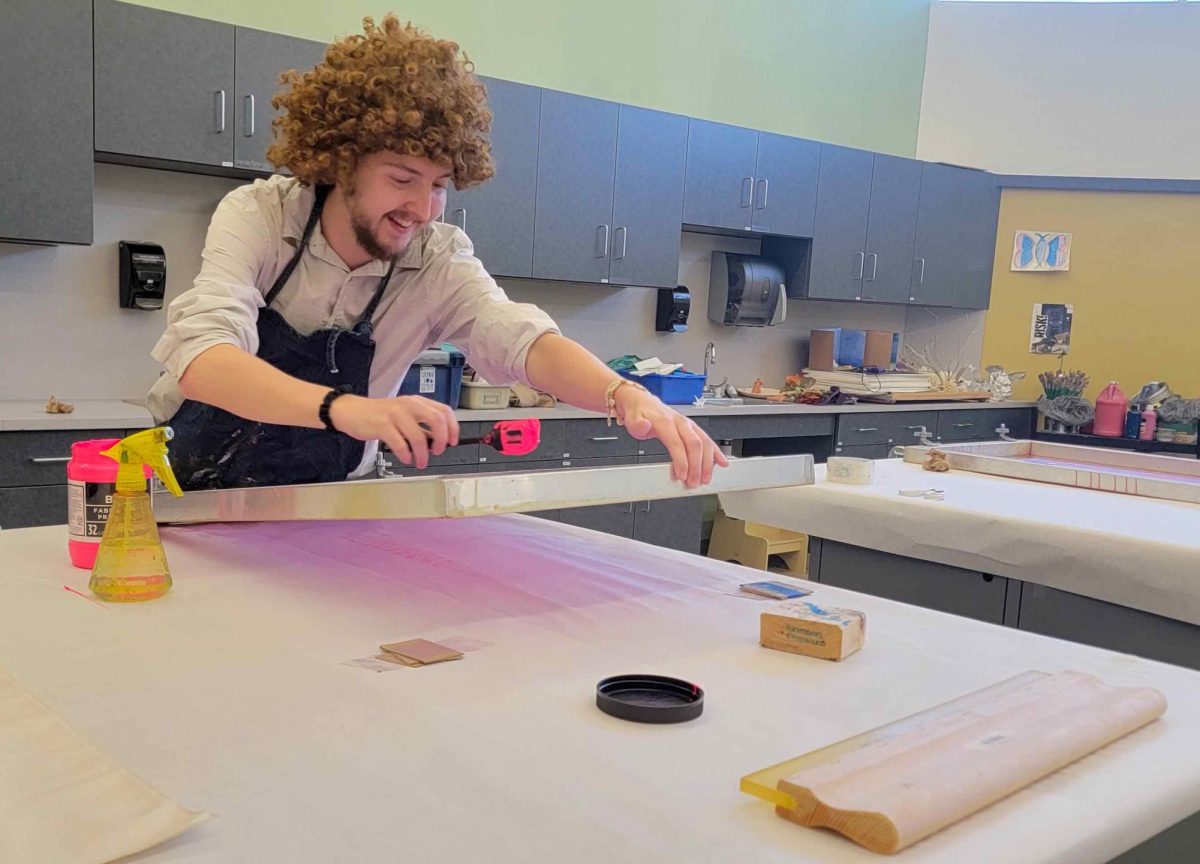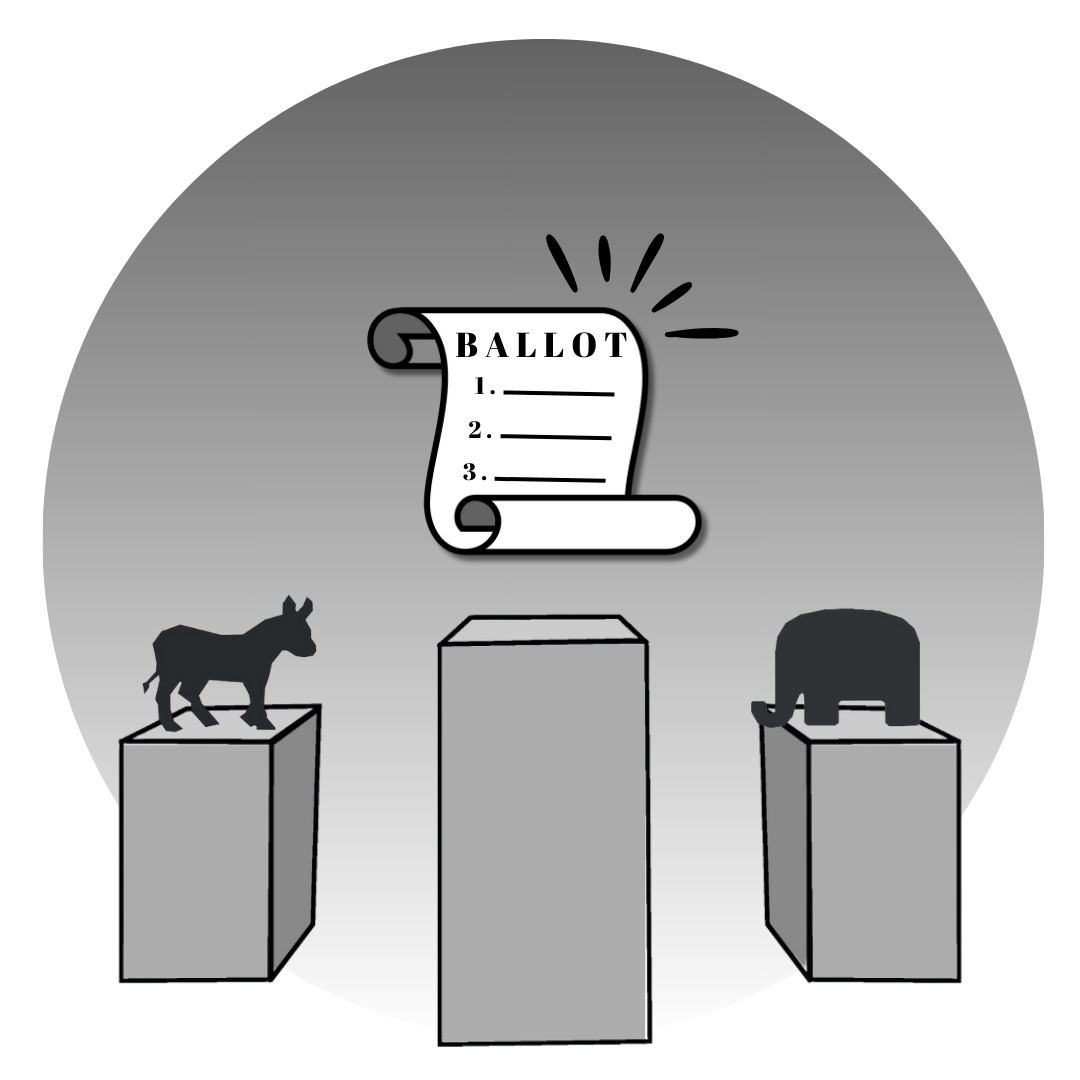Historical, modern perspectives of vaccination controversy
May 12, 2019
It all started with a study.
In the early 1990s, a group of British researchers published a study in The Lancet that showed people who received the measles, mumps and rubella vaccination were more likely to have bowel disease than people who did not.
One of the researchers who worked on the study was gastroenterologist Andrew Wakefield.
Wakefield branched off from the original study, further examining the link between the MMR vaccine and bowel disease.
Wakefield speculated that the infections caused by vaccine virus was a result of disruption of the intestinal tissue, which led to bowel disease and neuropsychiatric disease (autism specifically), according to the History of Vaccines.
A legitimate call to action, if this speculation proved to be correct, was to prevent future generations from getting the MMR vaccine. However, doing so would inevitably lead to health consequences, unless, of course, a healthier alternative was prosed.
Measles symptoms include fevers, rashes, coughs and watery eyes. Complications can result in pneumonia, brain damage and death, according to the Centers for Disease Control and Prevention.
People can experience headaches, muscle aches, tiredness and swollen salivary glands when they get mumps. Swollen testicles or ovaries, deafness, brain inflammation and (rarely) death can be the result of complications.
The symptoms that come with rubella are a little similar to that of measles, but if a pregnant woman gets it, she could have a miscarriage or the baby could be born with “serious birth defects,” according to the CDC.
People can protect themselves from contracting any of these diseases by getting the MMR vaccination, which brings the conversation back to the study.
The speculation of a possible link between autism and the MMR vaccination existed before Wakefield began his research, but nothing was “systematically investigated,” according to the HOV.
After a series of studies, Wakefield published the study in The Lancet in 1998 with 12 co-authors, “claiming they found evidence of the measles virus in the digestive systems of children who exhibited autism symptoms after MMR vaccination,” according to the HOV.
The authors of the study said they could not say there was a “causal relationship” between the MMR vaccine and autism, but Wakefield later suggested in a video release in conjunction with the published study otherwise.
In the video, Wakefield said he believed there was a link.
He then recommended suspending the combination MMR vaccine, pushing for single-antigen vaccinations given in separate doses over a stretch of time.
There was actually a huge conflict of interest here, though, because a patent was applied for, in the name of a medical school and a foundation, for a potential new, safer vaccine to combat MMR, according to investigative journalist Brian Deer’s website.
The patent application said, “I have now discovered a combined vaccine/therapeutic agent which is not only most probably safer to administer to neonates (newborn children or infants) and others by way of vaccination, but which also can be used to treat IBD (inflammatory bowel disease) whether as a complete cure or to alleviate symptoms.”
The applicants, as listed in the document, are “Royal Free Hospital School of Medicine and Neuro Immuno Therapeutics Research Foundation,” but the Deer’s website says both organizations denied any involvement with the application. Wakefield took out the application personally, according to the website.
The public reacted to the published study instantly. News organizations covered it exhaustively, and parents, both in Britain and the U.S., were left confused and worried. Some of them believed the study and stopped vaccinating their children.
The damage caused by this study published in The Lancet has bled into the present, even though the study was proven otherwise by several subsequent studies and retracted from The Lancet entirely.
The National Academies of Sciences, Engineering and Medicine published a study in 2004 that concluded there was no causal relationship between vaccines (specifically the MMR vaccine and thimerosal-containing vaccines) and autism.
The NASEM said it “recommends a public health response that fully supports an array of vaccine safety activities. In addition, the committee recommends that available funding for autism research be channeled to the most promising areas.”
A nationwide cohort study, published in the New England Journal of Medicine, concluded there are three strong arguments against a causal relationship between the MMR vaccine and autism.
First, The Journal said the risk of autism was similar in vaccinated and unvaccinated children; second, there was no clustering of autism cases after immunization; and third, no autistic spectrum disorders or autistic disorders were associated with the MMR vaccine. In conclusion, The Journal found that there was no link.
Richard Horton, the editor of The Lancet in 2004, said Wakefield’s research was “fatally flawed,” according to HOV. A majority of the co-authors of the study agreed and “retracted” the “interpretations” of the paper after it was published. In 2010, The Lancet retracted the paper itself.
On January 28, 2010, the General Medical Council found that Wakefield acted “dishonestly and irresponsibly” during his research on the link between the MMR vaccine and autism, the BBC reported in 2010.
Dr. Surendra Kumar, a chairman of the GMC, said Wakefield conducted “invasive tests, such as spinal taps,” on children without ethical approval or qualification, according to the BBC.
The panel said Wakefield was working as a gastroenterologist when he did these invasive tests for which he was not ethically approved for nor qualified to carry out.
On top of the callous disregard for the safety of the children involved in the study, there was another underlying conflict of interest Wakefield neglected to inform The Lancet of.
“(Dr. Kumar) said Dr. Wakefield should have disclosed the fact that he had been paid to advise solicitors acting for parents who believed their children had been harmed by the MMR,” the BBC says.
In May of 2010, the GMC banned Wakefield from practicing medicine in Britain, effectively disavowing his work as a gastroenterologist and researcher.
The damage, unfortunately, had already been done, though.
The National Center for Biotechnology Information says MMR vaccination rates dropped from 92 percent in 1996 to 84 percent in 2002; some parts of London only had MMR vaccination rates of 61 percent.
The study had some implications in the U.S., too, but they were not as severe; the U.S. saw a decline of about 2 percent in 1999 and 2000.
Even though the hypothesis that the MMR vaccine has a causal relationship to autism has been proven false by several studies, measles cases in the U.S. are skyrocketing this year.
The CDC reported that from January 1, 2019 to April 26, 2019, 704 cases of measles have been reported in a total of 22 states.
“This is an increase of 78 cases from the previous week. This is the greatest number of cases reported in the U.S. since 1994 and since measles was declared eliminated in 2000,” the CDC says.
The Associated Press reports that of these reported cases, about 75 percent of them come from ultra-Orthodox Jewish communities from Brooklyn, New York and suburban Rockland County. A majority come from people who have not been vaccinated.
The numbers are actually so startling and concerning that city officials have ordered mandatory vaccinations in four zip codes in Brooklyn. Failure to comply can lead to $1,000 in fines.
Misinformation is a cause for some communities having very low vaccination numbers, according to public health experts.
“Many parents are afraid. And if you want to believe your kid doesn’t need that many shots, there’s plenty of places to find people who agree with you … It’s not so easy to discern what is real and what is not,” Dr. Jonathan Fielding, the former head of the Los Angeles County Department of Public Health, told the Associated Press.
The NCBI seconds this opinion, asserting that the spread of false or bad information about vaccinations can lead to serious health implications in the U.S. and around the world. Much of this misinformation, it says, stems from the internet.
Researchers published an analysis in the NCBI concerning YouTube videos about immunization. Analysts found that 32 percent opposed vaccination and had higher ratings than pro-vaccination videos.
“I think it’s just general distrust of certain organizations right now. There’s also the internet, so people can look up alternative thoughts about medical care in general,” said Jeanine Hinshaw, a nurse practitioner for Eastern.
Hinshaw said another possible explanation for the rising measles numbers and for the increased attention the anti-vaccination movement has received stems from the general public’s difficulty reading and processing medical journals that have disproven the link between the MMR vaccine and autism.
Hinshaw said some parents who choose not to vaccinate their children instead go to traditional medicines, such as herbs and teas for example, to prevent the contraction of diseases.
She said the MMR vaccination is a proven method of prevention, but sometimes anti-vaccination parents find that these traditional medicines do work. If these nontraditional methods work for some people, she said there is no reason to stop using them. Everyone should still listen to the recommendations of their doctors, though.
One of the only surefire ways to educate people who spread misinformation about vaccinations, specifically the MMR vaccination, is to “have a dialogue” with them, she said.
“We could have both (traditional and nontraditional medicines) and have a dialogue about those things instead of saying, ‘Only this way, only that way.’ There could be a dialogue about those things,” Hinshaw said.
Logan Raschke can be reached at 581-2812 or at lrraschke@eiu.edu.




